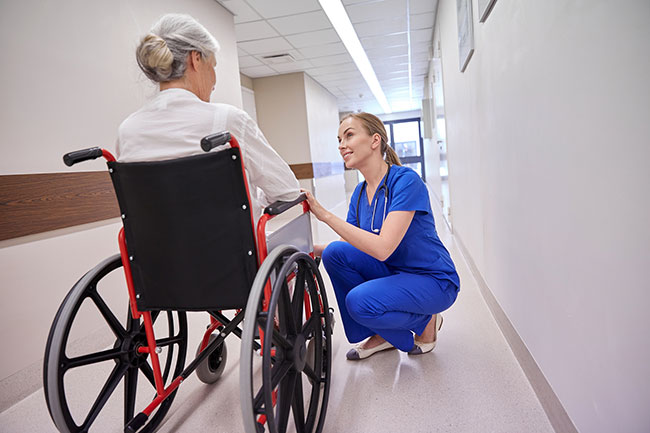Where do PNs Fall in the Healthcare Hierarchy
Posted On June 21,2017

Practical nurses are at the forefront of the national healthcare industry. They play a critical role in the care of patients in recovery, provide support in life-saving situations, and improve patient conditions, both in institutions and at home. In addition to daily duties such as administering fluids and medications; recording vitals; patient monitoring and assisting patients, your work involves so much more. You also provide advice and educate the patients in your care.
In the healthcare system, your hierarchy allows you to interact with doctors, patients, and their families, giving you a sense of fulfillment in your job. Some of the services defining your placement in the healthcare hierarchy system include:
Management
As a practical nurse, you repeatedly manage patient care and ensure proper implementation and evaluation of the patient care plan. You also advise other caregivers and medical professionals on the effectiveness of the care plan in action. Your management duties also allow you to take on supervisory roles for coworkers and other primary caregivers in your institution.
Advocacy
As a PN, you work tirelessly to ensure the best conditions for your patients. Advocacy means that you will work round the clock to give your patient comfortable recovery conditions, support their decisions and fight for their rights. You must understand that patient’s conditions often limit them from speaking up; use your voice to ensure they receive the best care possible. The amount of time you spend with patients also allows you to empathize with them: this puts you in a better position to express their desires and advise on treatment methods that respect these desires.
Counseling
As a PN, you will work closely with patients in need of constant medical attention. Depending on the diagnosis and the patient’s mental and physical health, you will often step up as a counselor to help your patients understand and handle their conditions better. Often, you will extend these services to family members and loved ones. When working with children, you must get creative to ensure the young patients understand their conditions without leaving them scared.
Medical Health Educator
Working closely with patients requires you to take on the role of a teacher constantly. You will explain conditions, repeatedly help patients follow their care plans and follow-up to ensure they understand. In some cases, you will work closely with doctors to explain a diagnosis to patients and their loved ones and help them identify the best care plan available.
Detective
In your work, you serve both the patient and the hospital. You must pay close attention to the patient and alert doctors of any abnormalities. You must also keep a keen eye and pay attention to patient needs, and advise the hospital accordingly, to avoid unhappy clients. Your work is to ensure both the hospital and the patients get the best outcome possible with every visit.
Practical nurses offer basic care to patients, working closely to implement the doctors’ instructions. Depending on the institution, you may work under or with registered nurses. In smaller institutions, you may have more supervisory roles and oversee other healthcare providers such as nursing interns and care providers.
While looking at their position in the healthcare hierarchy, PNs take on a more central position. They are part of every patient’s care plan, and doctors depend a lot on their feedback when assessing patients’ progress. Because they work closely with patients and their families, they are also ambassadors of the entire facility. Their relationship with the patients defines the facilities image and reputation with the public. To find out more about becoming a practical nurse, contact our admissions office.